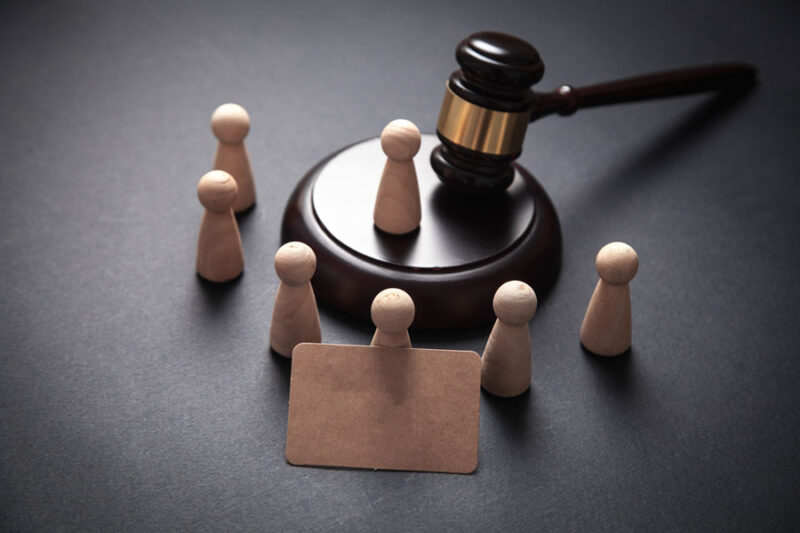
Legal guardianship is a legal arrangement where a court appoints someone to make decisions on behalf of an adult who cannot do so independently. For adults with disabilities, guardianship often becomes necessary when they are unable to manage essential tasks like healthcare or finances. It’s a decision that deeply impacts the life of the disabled individual and comes with significant responsibilities for the guardian.
Understanding the full implications of guardianship helps families make informed decisions. While it ensures that vulnerable individuals receive the care they need, it also takes away certain personal freedoms. This balance makes guardianship a topic that deserves careful thought and planning.
In this article, we will discuss various aspects of legal guardianship, from types and processes to the responsibilities involved and possible alternatives. Whether you are considering guardianship for a loved one or just seeking to understand the process better, this guide will provide key insights to help you move forward.
What is Legal Guardianship?
Legal guardianship is a court-approved arrangement where one person, the guardian, is given the authority to make decisions on behalf of another adult, often referred to as the ward. This typically happens when the court determines that the individual is unable to manage personal, medical, or financial matters on their own.
There are different types of guardianship, depending on the level of assistance needed. For instance, Full (Plenary) Guardianship gives the guardian control over nearly all aspects of the ward’s life, including medical decisions, finances, and living conditions. This is often used when the adult with disabilities cannot make any significant decisions independently.
On the other hand, Limited Guardianship grants authority over specific areas, such as financial or healthcare decisions, leaving other aspects of life under the individual’s control. For example, someone may need assistance with managing finances but be fully capable of making decisions about daily living activities.
Temporary Guardianship is used in cases where a person needs help for a short period, such as during a medical recovery. The court usually determines the length of temporary guardianship based on the circumstances.
These variations allow for a flexible approach, ensuring the individual gets the necessary support without taking away more independence than is needed.
When is Legal Guardianship Necessary?
Legal guardianship becomes necessary when an adult with disabilities is unable to make important decisions about their life due to cognitive, developmental, or physical limitations. This often includes people who cannot manage their medical care, finances, or living arrangements without assistance. In these cases, a guardian is appointed to ensure the individual’s well-being and safety.
For adults with disabilities, incapacity is the primary reason for considering guardianship. The person may be unable to make informed decisions about their health, personal care, or money management. Without help, they might face risks such as neglect, financial exploitation, or poor health outcomes. Therefore, guardianship is intended to protect these individuals by having someone who can act in their best interest.
However, before guardianship is granted, the court must determine that the individual is genuinely incapable of making key decisions on their own. This involves presenting medical records, evaluations from healthcare professionals, and possibly even testimony from those close to the person. It is a rigorous process because guardianship limits a person’s autonomy, often permanently.
It’s also important to remember that guardianship is not just about incapacity—it’s about ensuring that the adult with disabilities can live in a safe, supportive environment. Sometimes, other forms of support, like community resources or advocacy, might be enough. If not, then guardianship becomes the legal solution to safeguard the person’s life.
The Role and Responsibilities of a Guardian
A guardian appointed for an adult with disabilities is responsible for managing various aspects of the individual’s life, ensuring their well-being and safety. The specific duties depend on the type of guardianship granted, but generally cover the following key areas:
Personal Care:
- Ensure the individual’s living environment is safe and appropriate.
- Arrange housing, whether it’s independent living with support or placement in a care facility.
- Oversee daily needs like food, hygiene, and clothing.
- Support the individual in maintaining their dignity and quality of life.
Medical Care:
- Make decisions about healthcare treatments, surgeries, or medications.
- Coordinate with healthcare providers to manage ongoing medical care and ensure proper treatment.
- Ensure that healthcare needs are addressed promptly and effectively.
Financial Management:
- Manage the ward’s finances, including paying bills and managing assets.
- Keep financial records separate from personal funds, ensuring proper use of resources.
- Safeguard assets by managing accounts responsibly, such as creating a special account for handling expenses.
Legal Responsibilities:
- File periodic reports with the court, detailing the individual’s current condition and how their affairs are being managed.
- Act as the legal representative in court matters when necessary.
- Adhere to the terms of the guardianship order and make decisions in the individual’s best interest.
These responsibilities ensure the guardian acts as an advocate and protector, safeguarding both the personal and financial well-being of the person with disabilities.
Alternatives to Guardianship
While guardianship offers a structured way to support individuals with disabilities, it is often seen as a last resort because it can significantly limit the person’s independence. Fortunately, several alternatives exist that provide the necessary assistance while allowing the individual to maintain more control over their life. These options should be considered before pursuing full guardianship.
Power of Attorney (POA):
- Grants someone the authority to make specific decisions on behalf of the individual, such as financial or healthcare choices.
- The individual retains the ability to revoke or alter the agreement if they still possess decision-making capacity.
Supported Decision-Making:
- Involves the person with disabilities making decisions with the help of a trusted network, like family members or advisors.
- This option keeps the individual in control of their choices while providing guidance where needed.
Joint Bank Accounts:
- Provides financial oversight by having a trusted person on the account who can monitor spending and prevent misuse of funds.
- This solution can help the individual manage their money without full guardianship.
Representative Payee:
- A representative payee is appointed to manage Social Security or other benefits on behalf of the individual.
- The representative uses these funds solely for the benefit of the individual, ensuring their needs are met while maintaining some independence.
Trusts:
- Establishing a trust allows a trustee to manage assets on behalf of the individual without requiring court involvement.
- Trusts can be tailored to the specific financial needs of the person and offer more flexibility than guardianship.
These alternatives focus on maintaining the individual’s autonomy while ensuring their needs are met. Exploring these options can often provide the right level of support without the need for a formal guardianship arrangement.
The Guardianship Process
The legal process to obtain guardianship involves several important steps. These ensure that guardianship is granted only when truly necessary, as it has a significant impact on an individual’s rights and autonomy. Here is an overview of the key steps involved:
Filing a Petition:
- To initiate guardianship, the interested party, often a family member, must file a petition in the local probate court.
- The petition should include evidence of the individual’s incapacity, often supported by medical evaluations or other expert testimony.
Providing Proof of Incapacity:
- The court requires substantial proof that the adult with disabilities cannot manage their personal, medical, or financial affairs. This typically involves medical records and expert opinions from doctors, psychologists, or other professionals.
- The individual may also have their own legal representation during this process to ensure their rights are protected.
Court Hearing:
- After the petition is filed, a hearing is scheduled where the judge evaluates the evidence presented. Witnesses, medical experts, and family members may testify.
- The judge will decide if guardianship is necessary and, if so, what type of guardianship (full, limited, or temporary) is appropriate.
Appointment of a Guardian:
- Once the court determines that guardianship is necessary, a guardian is appointed. This is usually a family member, but it could be a professional guardian or someone else with a close relationship to the individual.
- The guardian must act in the best interest of the ward and follow the court’s guidelines.
Ongoing Oversight:
- After the appointment, the guardian is often required to submit periodic reports to the court. These reports update the court on the ward’s condition and how their financial and personal affairs are being handled.
The process ensures that guardianship is granted thoughtfully, balancing the need for protection with the importance of maintaining the individual’s rights wherever possible.
Pros and Cons of Guardianship: A Quick Comparison
| Pros | Cons |
| Protection and Safety: Ensures that adults with disabilities are protected from exploitation, neglect, or abuse. | Loss of Independence: The individual loses control over personal, financial, and healthcare decisions, reducing their autonomy. |
| Financial Management: Guardians handle financial affairs, ensuring that bills are paid, and assets are managed responsibly. | Difficult to Reverse: Guardianship is hard to terminate, even if the individual’s condition improves, requiring further legal processes. |
| Healthcare Decisions: Allows the guardian to make critical healthcare choices, including consenting to surgeries or treatments. | Social Stigma: Being under guardianship can create a perception of incompetence, impacting the individual’s self-esteem and social interactions. |
| Legal Representation: The guardian represents the ward in legal matters, protecting their rights and interests. | Potential for Abuse: Without proper oversight, a guardian could misuse their authority, putting the ward at risk. |
Frequently Asked Questions
1. What are the alternatives to legal guardianship for adults with disabilities?
Alternatives include Power of Attorney, Supported Decision-Making, and trusts, allowing more independence while providing support.
2. How does the court decide on guardianship?
The court reviews medical evidence and testimony to determine if the individual cannot make personal, medical, or financial decisions.
3. Can a guardian be removed or replaced?
Yes, a guardian can be removed if not acting in the ward’s best interest, or if the court finds a more suitable replacement.
4. What responsibilities does a guardian have?
Guardians manage personal care, medical decisions, and financial matters, ensuring the ward’s well-being.
5. Is guardianship permanent?
Guardianship can be reversed, but it is often difficult and requires court proceedings and additional evaluations.
Wrapping Up
Legal guardianship provides essential protection for adults with disabilities who cannot manage their personal, medical, or financial affairs. However, it significantly reduces the individual’s independence, making it crucial to explore alternatives like Power of Attorney or supported decision-making before proceeding. Guardianship is a serious commitment with long-term responsibilities, requiring regular court oversight and adherence to legal guidelines. Consulting a legal professional is recommended to ensure guardianship is the best option for your loved one. Balancing care with respect for autonomy is key when considering guardianship.







